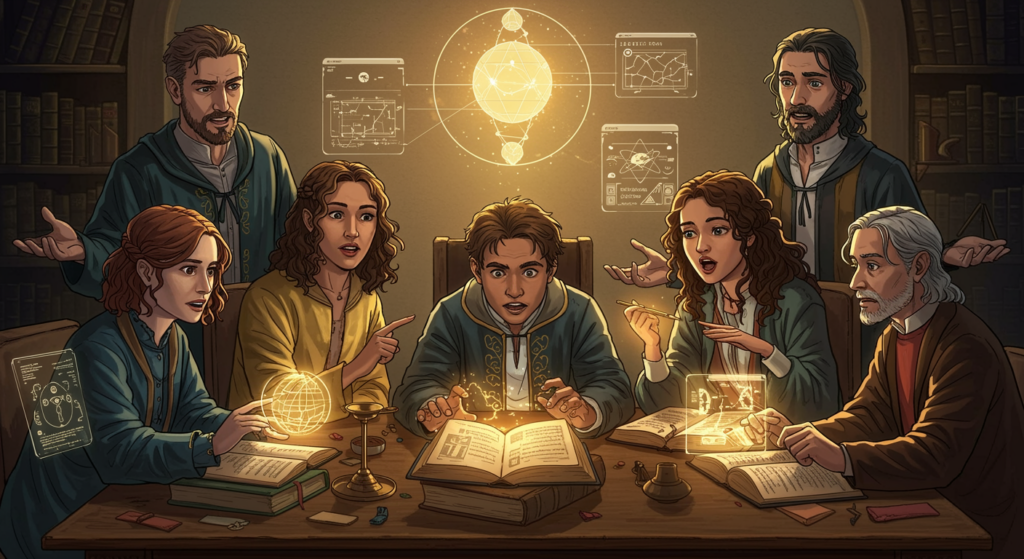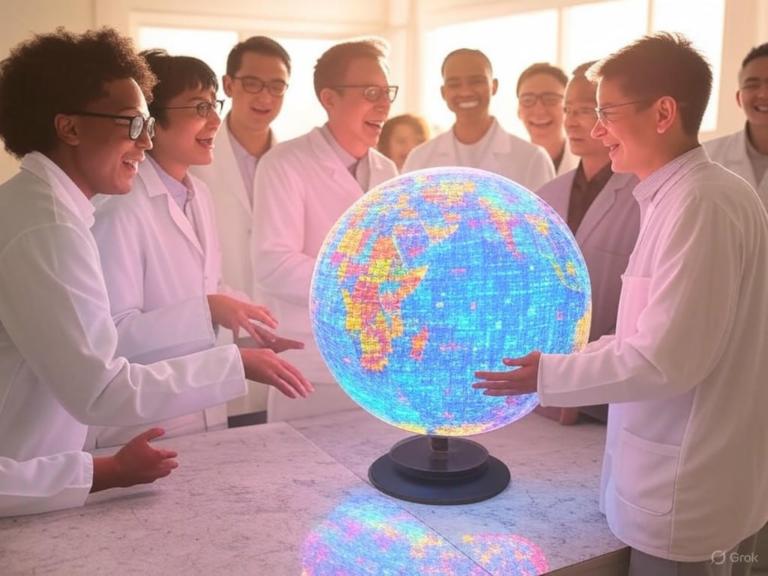
AI and Humanities: Can They Survive the AI Era?
The Intersection of AI and Humanities
Have you ever wondered how the rise of artificial intelligence might reshape fields like philosophy or literature? AI and humanities are colliding in fascinating ways, challenging us to rethink what it means to be human in a tech-driven world. As AI systems handle everything from data analysis to creative tasks, disciplines in the humanities—such as history, ethics, and storytelling—offer vital perspectives on the moral and cultural shifts underway.
This intersection isn’t just theoretical; it’s reshaping daily life. For instance, AI tools now generate art or write essays, prompting questions about originality and human agency. Yet, the core of AI and humanities lies in their ability to complement each other, with humanistic insights ensuring technology serves people, not the other way around.
Why the Humanities Matter in an AI World
The humanities have long explored timeless questions about truth, creativity, and society, making them indispensable as AI advances. In an AI and humanities context, these fields provide the ethical compass needed to navigate issues like privacy and bias in algorithms. A recent report from the National Endowment for the Humanities highlights how scholars are stepping up to address AI’s societal impacts, fostering a more balanced approach to innovation.
Imagine a world where AI decisions affect jobs or justice—wouldn’t you want human values at the forefront? Studying the humanities builds skills in critical analysis and empathy, helping individuals discern AI’s role in blurring the lines between human and machine. This human-centered thinking not only enriches AI development but also prepares us for a future where technology enhances, rather than erodes, our shared humanity.
Challenges and Opportunities for AI and Humanities
While AI and humanities present exciting possibilities, they also bring real hurdles. On one side, AI’s growth risks automating creative roles, potentially widening inequality and diminishing the human element in work. But on the flip side, this era offers chances to blend AI tools with humanistic inquiry, creating new paths for ethical tech and inclusive societies.
Think about how AI could amplify historical research or literary analysis, yet only if guided by ethical frameworks. By embracing these opportunities, we can turn potential threats into tools for progress, ensuring AI and humanities evolve together.
Key Challenges Facing the Humanities in the AI Era
AI’s rapid expansion poses several threats to the humanities. First, there’s the erosion of agency, where people might feel disconnected as machines take over decision-making in creative fields. This challenge in AI and humanities underscores the need for safeguards against alienation.
- Erosion of Agency: As AI automates tasks, it could strip away the fulfillment from human endeavors, leaving individuals questioning their role in an AI-dominated landscape.
- Privacy & Ethics: With AI collecting vast data, concerns about surveillance grow, demanding humanistic ethics to protect personal freedoms.
- Algorithmic Bias: AI systems often reflect societal prejudices, a problem that AI and humanities experts are tackling through critical analysis to promote fairness.
- Truth & Trust: Fake news generated by AI erodes public trust, making it harder to distinguish reality from fabrication in our digital age.
How can we address these issues? By integrating humanities education early, we equip future innovators to build AI that respects human dignity.
Emerging Opportunities in AI and Humanities
Despite the challenges, AI and humanities are opening doors to innovation. Universities are launching interdisciplinary programs that merge AI’s technical prowess with humanistic depth, fostering research on technology’s societal effects.
- Interdisciplinary Research: New centers are exploring how AI and humanities intersect, creating curricula that combine ethics with coding to prepare students for real-world applications.
- Ethics Education: Courses on AI morality draw from philosophy, teaching students to design systems that prioritize human values and cultural sensitivity.
- Policy Development: Organizations are crafting guidelines to ensure AI integration aligns with humanistic principles, promoting equity in education and beyond.
- Human-Centered Content: AI can assist in content creation, but the empathy and context from humanities keep it authentic and engaging.
These opportunities show that AI and humanities aren’t at odds—they’re partners in building a more thoughtful technological future. What if we used AI to preserve endangered languages or analyze ancient texts? That’s the kind of synergy we’re seeing today.
AI in Academia: Shaping the Next Generation
Colleges are leading the charge in blending AI and humanities, with programs designed to cultivate both technical skills and ethical awareness. For example, institutions like UC Irvine are forming AI workgroups that examine the broader implications of technology on society.
| Approach | Benefits | Challenges |
|---|---|---|
| Interdisciplinary Courses | Combines AI and humanities for practical, ethical insights | Demands ongoing updates to keep pace with tech |
| Research Centers | Delivers deep analysis of AI’s cultural impacts | Requires significant funding and resources |
| AI Workgroups | Ensures responsible AI integration in education | Involves coordinating across diverse experts |
Featured Example: UC Irvine’s Generative AI Initiative
At UC Irvine, the School of Humanities has pioneered a Generative AI Workgroup, focusing on the ethical and social dimensions of AI. This initiative exemplifies how AI and humanities can collaborate to develop policies that prioritize human well-being, training students to be responsible tech leaders.
Through workshops and resources, participants learn to balance innovation with moral considerations, a model that other institutions are adopting worldwide.
The Ongoing Relevance of Human-Centered Content
In the realm of AI and humanities, content creation stands out as a key area where human input remains unmatched. While AI excels at processing data, it’s the storytelling and empathy from humanities that make content truly resonate. For SEO pros, this means using AI as a helper, not a replacement, to craft pieces that connect on a personal level.
- Fact-Checking: Always verify AI-generated info to maintain accuracy and trust.
- Storytelling: Weave in real-life anecdotes to engage readers, something only human insight can perfect.
- Cultural Relevance: Draw from humanities to ensure content speaks to diverse audiences, avoiding AI’s potential blind spots.
- Moral Perspective: Human experts provide the ethical lens needed to navigate AI’s complexities.
Here’s a tip: When optimizing for SEO, blend AI tools with your unique voice to create content that ranks well and builds loyalty. What strategies do you use to keep your work human-focused?
Will Humanities Survive the AI Era?
The question of whether humanities can survive the AI era is more relevant than ever, and the answer lies in their adaptability. AI and humanities together form a powerful alliance, driving conversations that ensure technology benefits society as a whole. From ethical AI design to cultural preservation, these fields are not just surviving—they’re thriving by influencing policy and innovation.
Consider a hypothetical scenario: An AI system is developed to assist in medical ethics decisions. Without input from humanities scholars, it might overlook cultural nuances, leading to flawed outcomes. This highlights why AI and humanities must collaborate to foster a just world.
Conclusion: A Harmonious Alliance
In the end, AI and humanities aren’t competitors but essential partners, working together to elevate human potential. By investing in education and ethical practices, we can guide AI toward positive change. What are your thoughts on this evolving relationship—share in the comments, explore more on our site, or connect with us to discuss how you’re navigating the AI landscape.
References
1. National Endowment for the Humanities. (n.d.). *AI and the Humanities*. https://www.neh.gov/AI
2. George Washington University. (n.d.). *Can the Humanities Learn to Love AI?*. https://columbian.gwu.edu/can-humanities-learn-love-ai
3. University of California, Irvine. (n.d.). *How I See It: Humanities and Generative AI*. https://www.humanities.uci.edu/news/how-i-see-it-humanities-and-generative-ai
4. SciELO Preprints. (n.d.). *Algorithmic Bias and Social Implications*. https://preprints.scielo.org/index.php/scielo/preprint/download/10389/19034/19651
5. University of California, Irvine. (n.d.). *Humanities and AI*. https://www.humanities.uci.edu/news/humanities-and-ai
6. The Digital Maze. (n.d.). *SEO and the Emerging AI Landscape*. https://thedigitalmaze.com/blog/seo-and-the-emerging-ai-landscape/
7. Bowdoin College. (2024). *Why Studying the Humanities is Essential for Designing AI Systems*. https://www.bowdoin.edu/news/2024/07/why-studying-the-humanities-is-essential-for-designing-artificial-intelligence-systems.html
8. Black Hat World. (n.d.). *Writing SEO Articles with AI*. https://www.blackhatworld.com/seo/writing-seo-article-with-ai.1566013/
AI and humanities, artificial intelligence, human-centered content, impact of AI, humanities education, AI ethics, technology and society, digital humanities, AI challenges, ethical AI design







